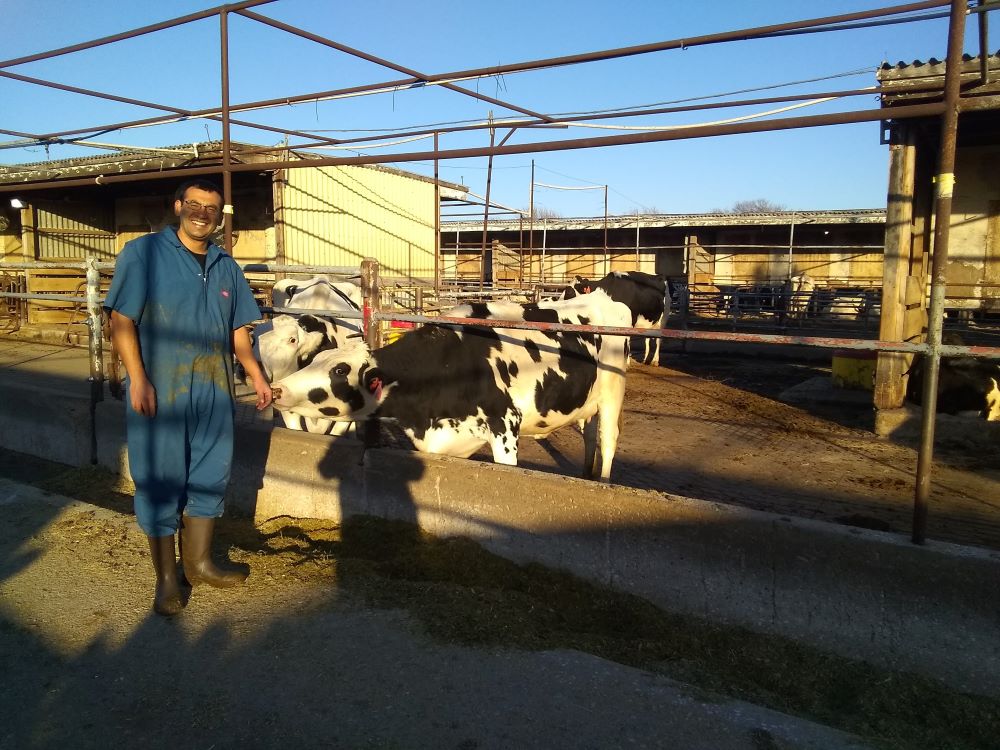Utilizing omega-3s to improve dairy cow reproduction and human nutrition
Santiago Páez Hurtado is approaching the finish line of obtaining his Master of Animal Science and Industry degree. Originally from Quilpué, Chile, he has enjoyed biology and working with animals his whole life, including watching numerous “Animal Planet” documentaries during his childhood.
All this led Páez to pursue a degree in veterinary medicine with hopes of returning to Quilpué to work at the local zoo. However, after studying at the University of Chile — where he received both a Bachelor of Veterinary Science and Doctor of Veterinary Medicine degrees — he worked in production with dairy cattle and beef cattle and enjoyed various opportunities to work with farmers.
“I believe the work of farmers is important because they provide food for people, which is beneficial for human nutrition and health, and I really enjoy helping them do that more efficiently,” Páez said.
Páez participated in a 2022 Global Food Systems Seed Grant project led by Victor Gomez Leon, assistant professor of animal sciences and industry, which studied the effects of supplementing Holstein dairy cows with omega-3 fatty acids on reproduction and milk production. Their goal was to improve fertility and embryo development of the cows by incorporating omega-3 fatty acids into their diet, as well as have those omega-3s be naturally present in milk consumed by humans.
Páez collected and analyzed the data, which included collecting blood and milk samples and conducting ultrasounds. He then studied the results to assess the embryo development in pregnant cows and the status of their milk production as well.

In terms of affecting milk production, the research showed that cows supplemented with omega-3 fatty acids tended to produce more milk than the control cows. While the supplementation did not change the percentage of protein or fat in milk, it increased the amount of omega-3 fatty acid which indicates the omega-3 supplementation was absorbed and distributed through the body.
For fertility, a higher blood flow to the corpus luteum indicates better functionality, as well as a higher percentage of oocyte grade I and II in cows supplemented with omega-3 are evidence that omega-3 supplementation can help in the embryo-fetal development.
This project has grown Páez’s desire to work in research and extension, building upon his goal of enabling farmers and companies to be efficient, profitable and provide quality food for people.
“This research has prepared me for a future working in extension and providing training to farmers,” Páez said. “I want to bring the knowledge from research, scientific literature and the tools and knowledge found at universities to farmers and companies.”
Páez is on track to defend his thesis and graduate in November 2023 and is applying for jobs in extension at different universities and in industry with cattle genetics and reproductive companies.
Learn more about Páez and Gomez-Leon’s research here.